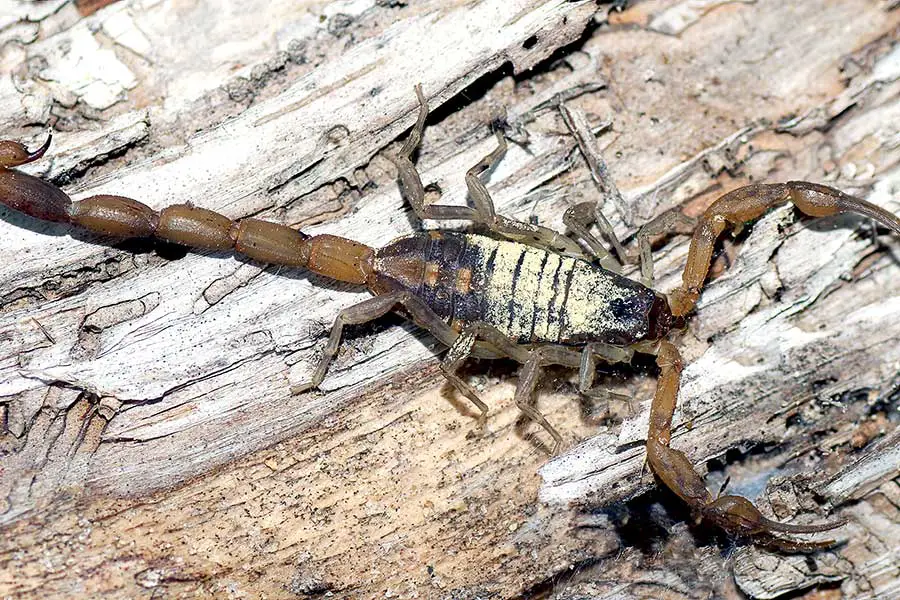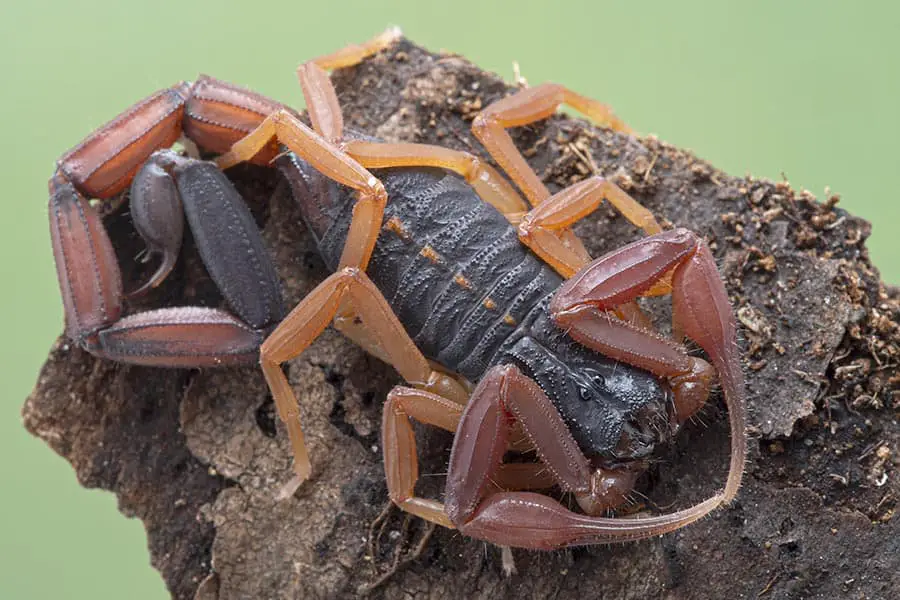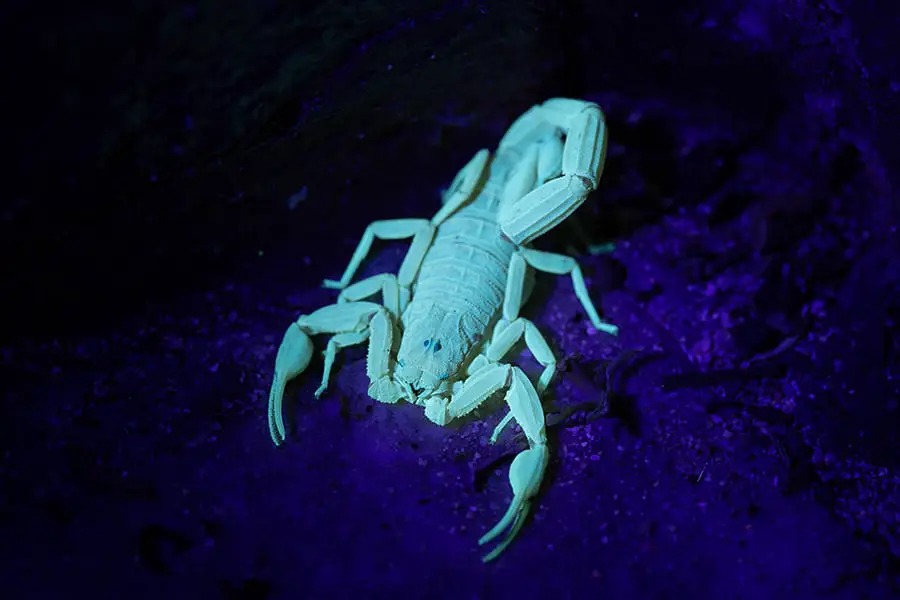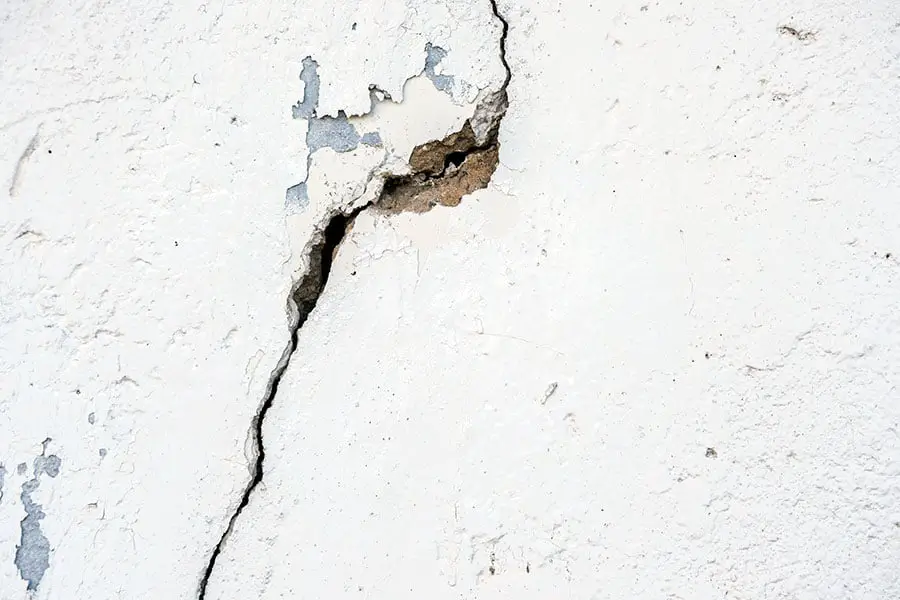
Florida is known for all manner of critters: we have alligators, bears, snakes, sharks, big birds of prey… we have most everything here. But one creepy-crawly never seems to come up when talking about Florida: the scorpion. So you might be wondering whether Florida has scorpions.
Florida does have scorpions, but they are not dangerous unless you happen to be allergic to scorpion venom. These little arachnids like to hide in debris and hunt insects, spiders, and even other scorpions. While they are in Florida, they’re not a significant problem for your average Floridian.
So where in Florida are there scorpions? What kind of scorpions are in Florida? Are they dangerous for cats and dogs, and do they come out at any specific time of day? Let’s read on and learn more about these interesting creatures.
Scorpions: We Have Those, Too
While they are definitely pests if they’re in your house, scorpions (well, some of them) are a naturally occurring part of Florida’s ecosystem. Scorpions eat other pest insects, and some even eat other scorpions! They also serve as useful prey for a variety of predator animals, like owls, lizards, and some mammals.
Scorpions are predatory arthropods. What does that mean? It means that they are predator animals that are in a specific family of invertebrates. They use their claws to restrain prey, which they then subdue with their stinger before consuming it.
Despite their fearsome reputation, Florida scorpions are not especially dangerous to human beings. On the contrary, they are actually quite helpful in a way, as they consume pests such as cockroaches, spiders, and other aggravating insects. Nevertheless, they’re not the kind of thing you want in your house, and they are a little creepy.
What Kind of Scorpions Live in Florida?
There are three types of scorpions in Florida. Two are native to the state, and one is an invasive species. The two native species are the Hentz Striped Scorpion (Centruroides Hentzi) and the Guiana Striped Scorpion (Centruroides Guianensis). The invader is the Florida Bark Scorpion, Centruroides Gracilis.
The Florida bark scorpion is, confusingly, not from the United States at all. Instead, these little guys originated somewhere in South America and likely infiltrated Florida as a result of the exotic pet trade. They are ordinarily three to four inches long, with a brown body and some yellow dashes on the back. These scorpions are primarily found in the more tropical regions of South Florida.
The Hentz striped scorpion is the most common scorpion in the Sunshine State. They are blessedly small, maxing out at about two and a half to three inches long. The Hentz scorpions are darker brown, with faint yellow to green stripes across the back. They are often found under debris and eat pests like spiders and cockroaches.
Our final scorpion is the Guiana striped scorpion. These scorpions are only found in far southern Florida, in Collier, Monroe, and Miami-Dade Counties. They have a yellow body and like to hide in loose debris.

Where do Scorpions Live in Florida?
Scorpions are found all over the state of Florida. All three scorpion species that live in Florida are found in south Florida, but the Hentz striped scorpion and the Florida bark scorpion are found all over Florida. Scorpions as a species like to live in debris, like rocks, sand, mulch, or bark. As the name would suggest, the Florida bark scorpion likes living in bark and near wood: they are sometimes found under boards in newly built or abandoned houses.
When scorpions get in your house, they often come in through gaps under doors or around windows. They also like to infiltrate homes through plumbing and electrical systems. Scorpions have also been known to sneak in as part of a bundle of firewood, on a potted plant or outdoor furniture.
Once in your home, they prefer the same kind of environments they live in outdoors. So they often hide in crawl spaces, under kitchen cabinets, or in garages and bathrooms.
Are Florida Scorpions Poisonous?
Florida’s scorpions are venomous. They come equipped with a little stinger on their tail end that secretes a venom that can cause pain, swelling, and numbness or tingling. However, the scorpions found in Florida do not secrete a venom that can kill human beings. You’ll find their stings painful but not lethal.
However, in some rare cases, people are allergic to scorpion venom, like some people are to bee venom. If you are allergic to scorpions and you get stung, you should immediately call 911 and seek medical attention.
You should also call 911 if you experience any of the following symptoms after a scorpion sting:
- Difficulty breathing;
- Drooling;
- Sweating;
- High blood pressure;
- Elevated heart rate.

Phenomenal Florida Fun Fact: Scorpions fluoresce under ultraviolet light! Nobody is 100% sure why or how, but it makes them easy to find: just shine a UV light around and watch them glow.
Other Posts of Interest
- Is It Illegal To Take Dead Sand Dollars From The Beach In Florida?
- Which Florida Coast Is Better for Fishing? And The Species You Can Catch
- Does Florida Have Pythons?
- Do Both Alligators And Crocodiles Live In Florida?
Can Florida Scorpions Kill a Dog?
No, the only scorpions in the United States that can kill a dog are Arizona bark scorpions, which are not found in Florida. However, a scorpion sting can still cause your pet significant pain, swelling, and distress. Therefore, if they are stung by a scorpion, it is a good idea to seek veterinary help.
Are Florida Scorpions Poisonous to Cats?
Florida’s scorpion species are not lethal to cats. This is good news for cats because some cat owners have reported that their feline friends like to play with scorpions. The bad news is that, much like with dogs, scorpion stings can cause pain, swelling, and distress at the site of the sting. Therefore, if your cat has been stung by a scorpion, you should likewise seek veterinary help.
Are Florida Scorpions Aggressive?
Florida’s scorpion species are not inherently aggressive to humans. They are actually relatively reclusive and shy, preferring to hide among lumber, bark, sticks, or in other dark and secluded crevices. Even if you encounter a scorpion, it is unlikely to attack you or come at you: they will sting when they are threatened, but they do not aggressively attack, go after, or harass people.
How Do You Get Rid of Scorpions in Florida?
The easiest way to get rid of scorpions is to make your environment unappealing to them. Scorpions like loose debris and the other critters who are attracted to it, like roaches and spiders, so sweeping and cleaning your space is important. Keeping outdoor areas and garages free of debris and clutter helps remove hospitable hiding places for them.

Sealing up any cracks, holes, or openings in your home also helps deter scorpions. If you have any cracks in the stucco or other damage to walls, slabs, or foundations, you should have it professionally repaired and sealed to remove tempting hiding places. Keeping your lawn and landscaping groomed and clean can also help prevent scorpions from moving in.
If you end up with scorpions in your home, you can use sticky traps to catch them. Pesticide sprays and applications are less effective against scorpions because their legs make minimal contact with the ground. If you have more than one or two scorpions, you should call a pest control company: scorpions give birth to between 20 and 50 nymphs at a time, so a minor problem can become a major problem pretty fast.
What Do You Do if You Get Stung by a Scorpion in Florida?
If you are stung by a scorpion in Florida, don’t panic! It will probably hurt, and it will likely swell. Scorpions in Florida are not venomous enough to kill a person. However, you should take basic first aid measures: clean the wound and apply ice.
If you are allergic to scorpion venom and you get stung by a scorpion, you should dial 911. In addition, if you experience symptoms like shortness of breath, dizziness, nausea, vomiting, or a high heart rate, you should seek medical attention.
When are Scorpions Active in Florida?
Scorpions prefer the night life: they prefer to be active at night and will generally avoid leaving their hiding spots during daylight hours. However, if you uncover their hiding spot during daylight hours, they’re likely to skitter off and try to find shelter.
Some people have hypothesized that the reason scorpions fluoresce under UV light is to help them avoid sunlight by providing them with a visual cue that they are no longer hidden.
Scurry On, Scorpions
While Florida does have a few species of scorpion that call our state home, they are not especially problematic for your average Florida resident. Happily, none of our scorpions are lethal to human beings or pets.
Unfortunately, they may occasionally find their way into a home, but some basic tidiness measures can discourage these arachnids from trying to get into your house. So don’t let these little guys freak you out: Florida is a great place to live or visit, scorpions and all!





